- Blog
- Personalized Notifications: What They Are and Why They Matter
Personalized Notifications: What They Are and Why They Matter
Table of Contents
71% of consumers now expect brands to offer personalized communications and tailored products or services.
That’s where personalized notifications come in—and they’re not just a “nice to have.” They’re a serious growth lever for ecommerce brands that want to engage better, convert faster, and sell smarter.
In this article, we’ll break down what personalized notifications really are, why they matter, and how you can start using them to drive real results.
What are personalized notifications?
Personalized push notifications are tailored messages sent directly to a user’s mobile device or browser, usually through mobile apps. They’re built using data like location, past browsing behavior, purchase history, preferences, and even demographic info.
Rather than sending a generic “Hey, check out our sale!” to everyone, you could send: “Hi Sarah, your favorite sneakers are back in stock in your size!”
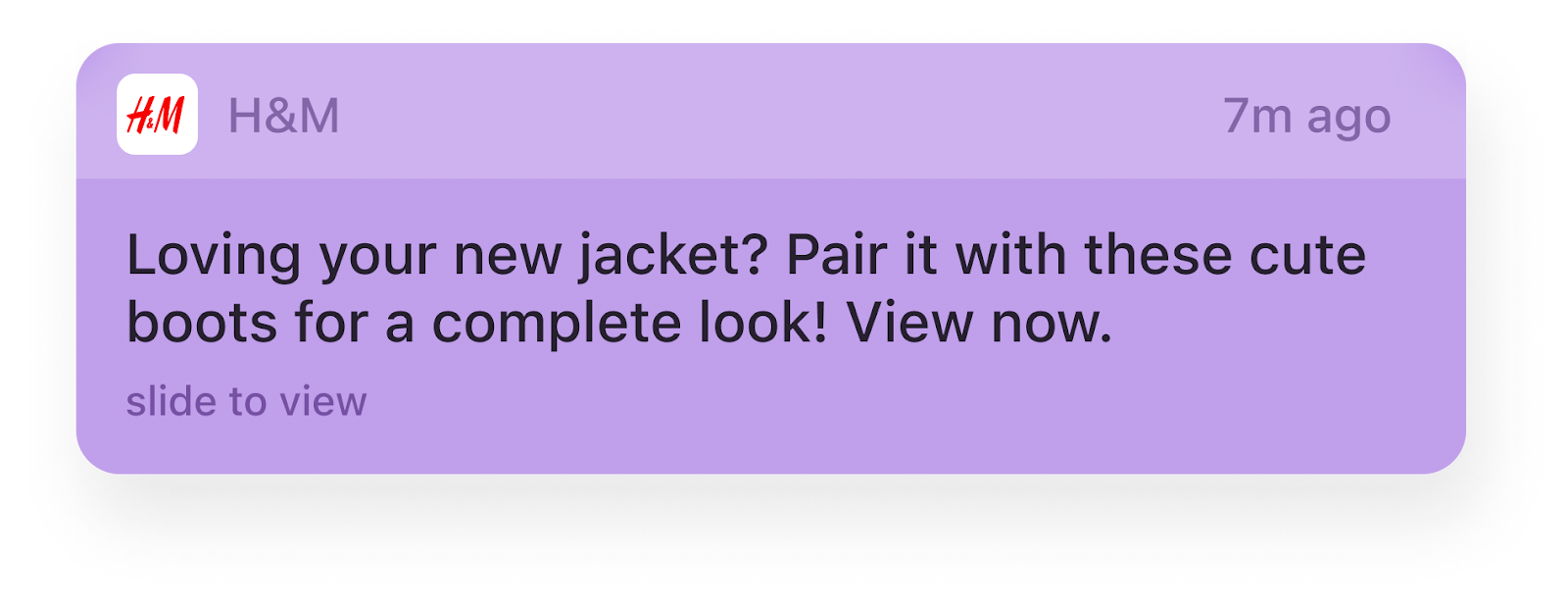
Source: Sendbird
See the difference?
This level of personalization applies specifically to mobile apps, making them a powerful tool for reaching users where they’re most active.
These notifications help brands:
- Improve customer engagement
- Drive conversions
- Boost retention
- Enhance the overall user experience
5 personalized push notification examples
Personalized push notifications drive engagement and boost sales by offering tailored content and promotions. Here are five brands doing it right:
1. Sephora
Sephora greets new users with a warm notification, ensuring they receive exclusive content, product launches, and special offers as soon as they download the app.
It’s all about creating that perfect “I was just thinking about this!” moment.
Their alerts for exclusive sales and new product releases keep users in the loop about the latest beauty essentials—and who doesn’t love a sneak peek at what’s coming next?
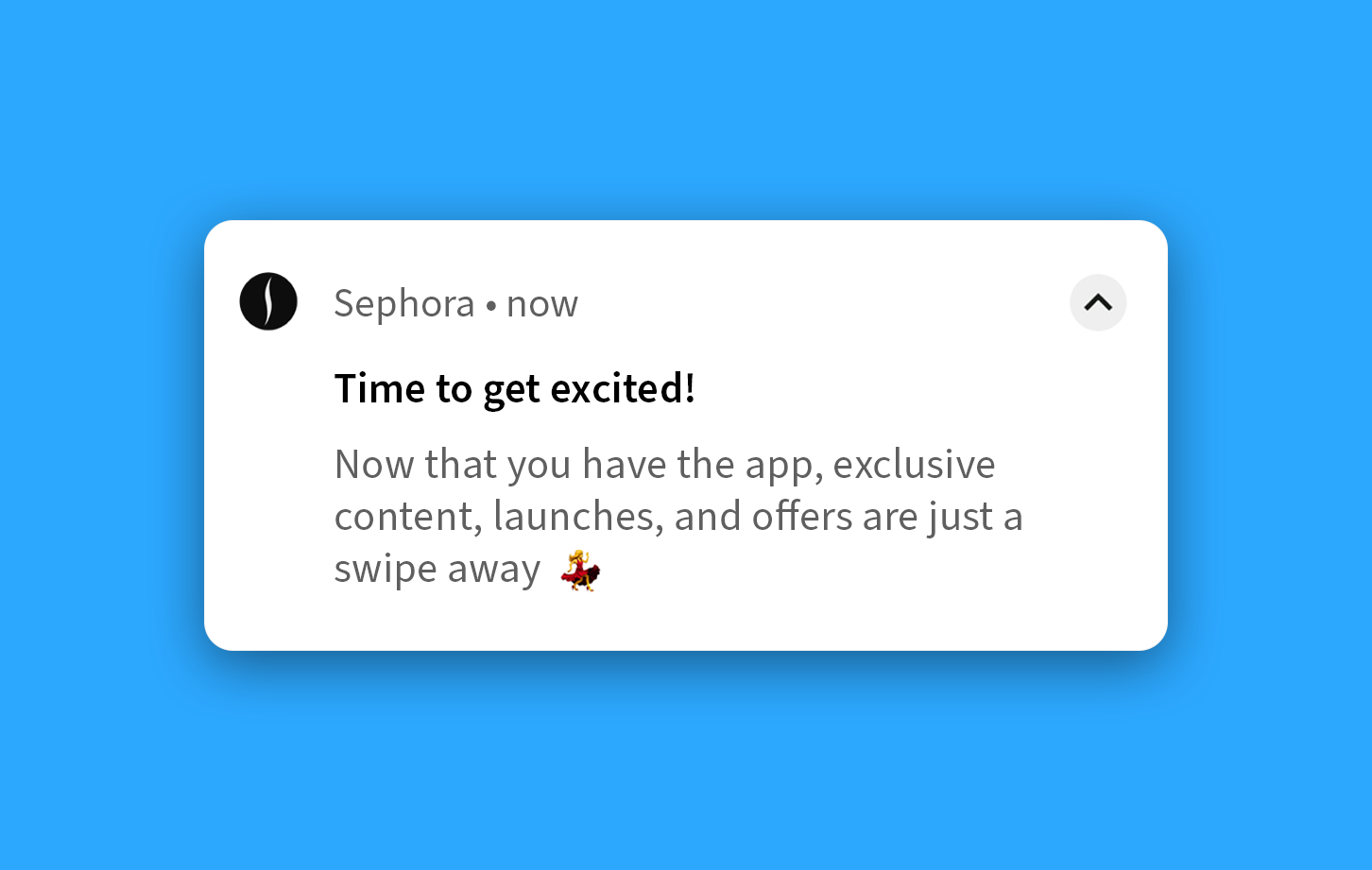
Source: MobiLoud
2. Uniqlo
Uniqlo is a pro at using push notifications to highlight price drops, especially for items left behind in abandoned carts.
Instead of just reminding you about what you left, they send personalized alerts offering a discount or a special deal on those exact items.
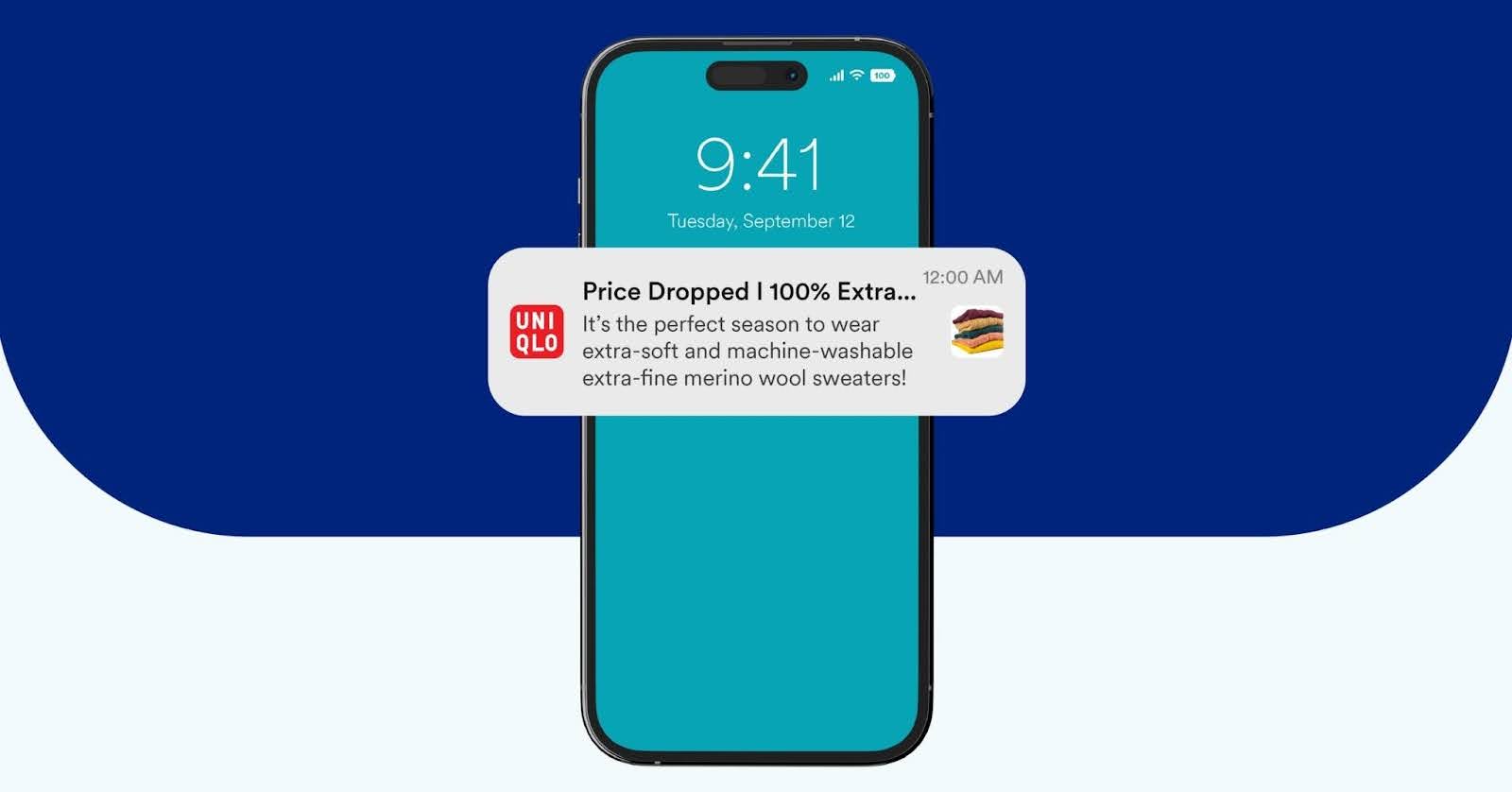
Source: Moengage
For example, if you’ve been eyeing a jacket but didn’t pull the trigger, you might get a notification saying, “The price just dropped! Complete your purchase now and save.”
This creates a sense of urgency and makes it easier for customers to finalize their purchases. It’s a clever strategy that blends personalization with savings.
3. H&M
When it comes to pushing the latest trends, H&M knows what they’re doing. They send notifications about new arrivals, making sure their customers are always cued into the hottest styles.
This is highly relevant content for their audience, keeping the brand top-of-mind and customers engaged.
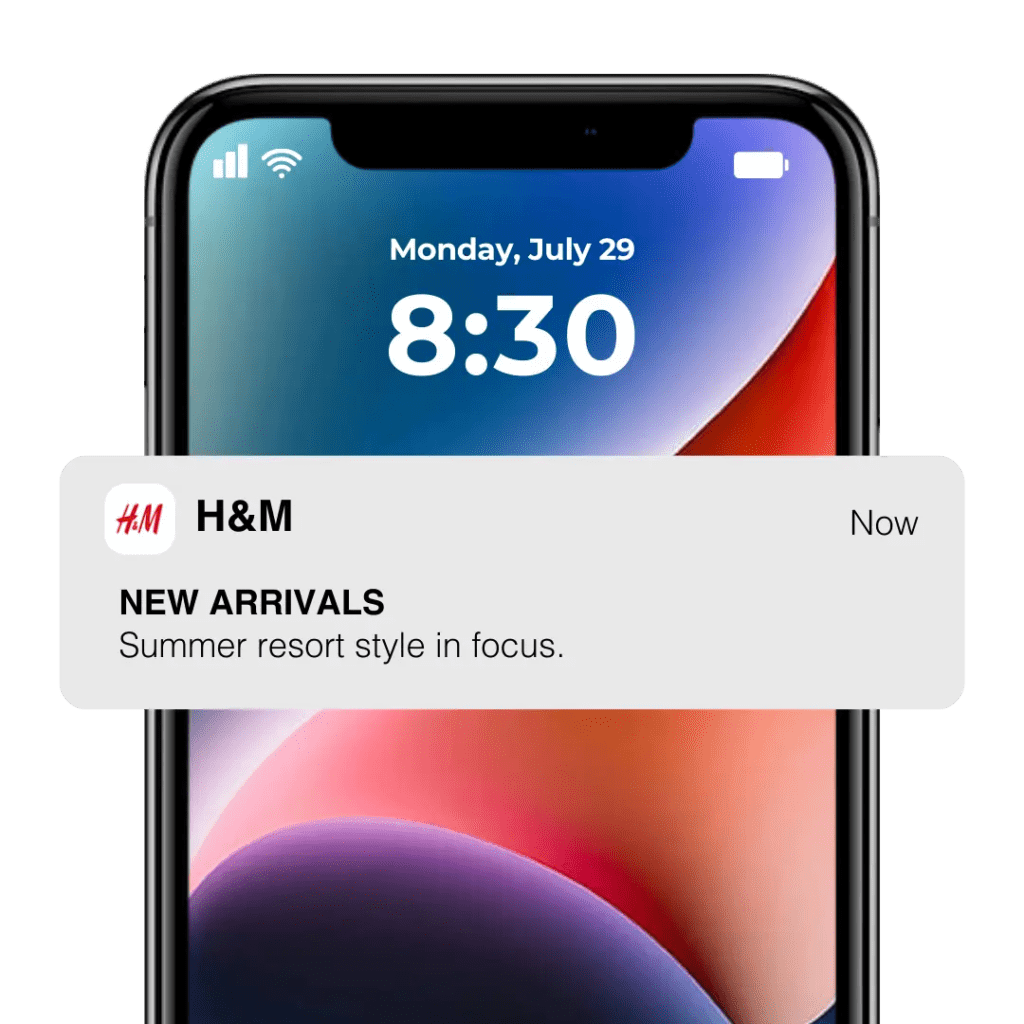
Source: Mobiloud
It’s not just a notification; it’s an invitation to explore the new collection and stay ahead of fashion trends. Simple, yet effective.
4. Jet
Cart abandonment is an age-old challenge in ecommerce, but Jet knows how to tackle it with a light-hearted approach. By using fun, friendly messaging, they remind customers about the items they’ve left behind.
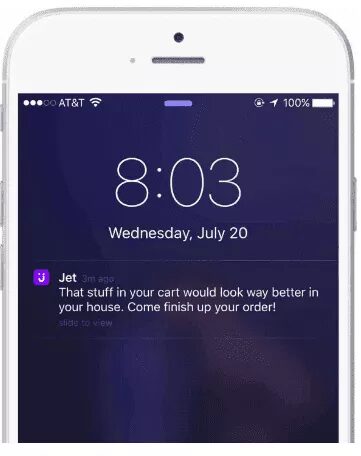
Source: Omnisend
Their playful notifications help make the process less transactional and more personal, which not only increases the chances of a return visit but also brings some personality to the brand.
After all, who can resist a little humor served up with their shopping cart reminders?
5. PLNDR
PLNDR takes personalized notifications to the next level with hyper-targeted offers for cart abandonment.
Their notifications include specific discounts and incentives, like “Get 40% off plus free shipping on the items you left behind. Add them to your cart now!”
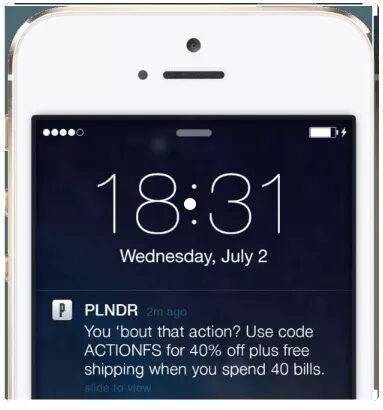
Source: Omnisend
This type of behavioral targeting helps boost sales recovery rates by making the deal too good to pass up.
3 extra tips to use personalized notifications in your ecommerce store
We’ve been talking about personalized push notifications, but personalization can be used on your website, too. Let’s see some extra tips on how to personalize messages on your ecommerce website to deliver unique user journeys.
1. Bring shoppers back with browsing reminders
Not every visitor buys on the first visit. But if they come back, that’s a golden opportunity to send push notifications that remind them about where they left off.
Browsing reminders help them pick up where they left off—whether that’s viewing a product page or checking out a specific category.
Take a note from ParfumeLab. They used a simple “Welcome back, pick up where you left off” notification paired with positive reviews. The result? A 19% increase in returning visitor sales.
It’s subtle, helpful, and most importantly, it’s personal.
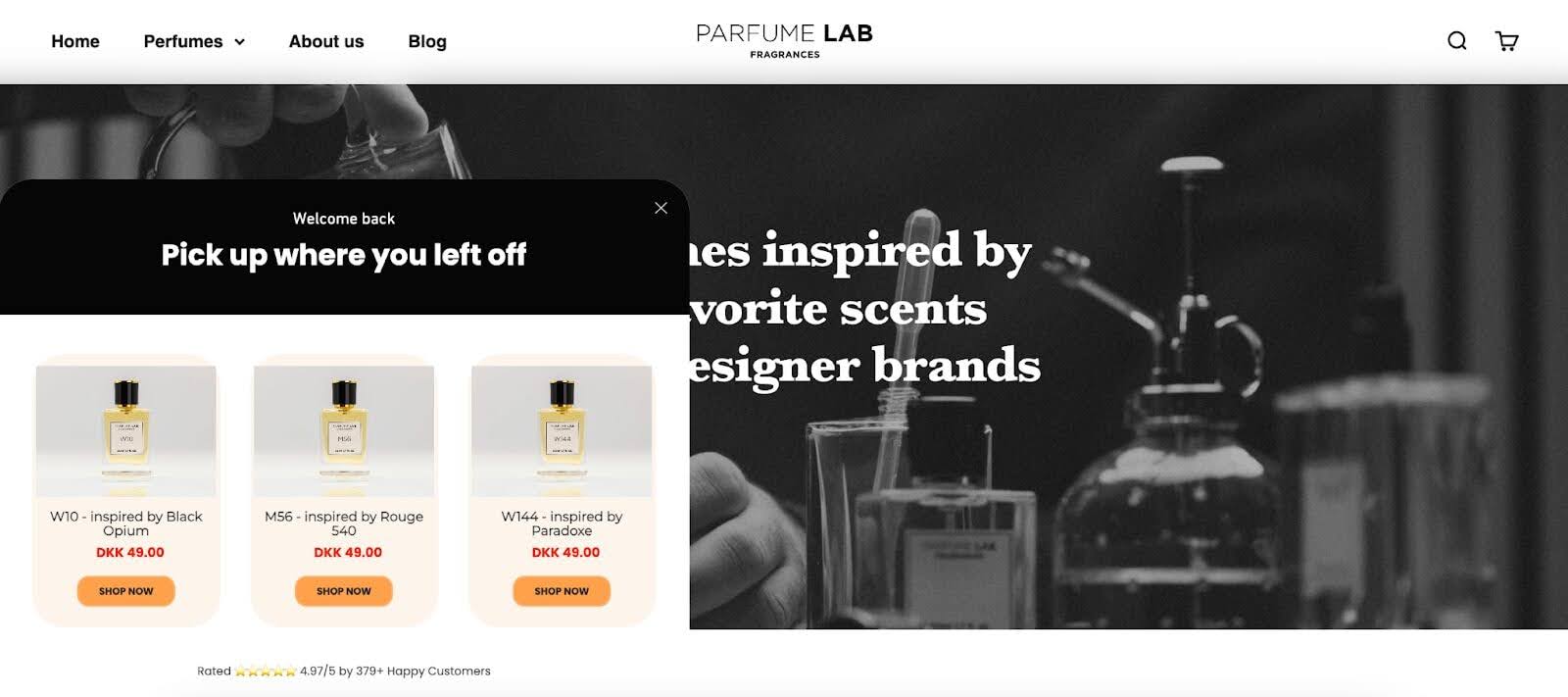
Ready to implement this tactic for your business? Get started with these templates:
2. Use exit reminders for abandoned carts
Cart abandonment is not just a problem in your mobile app—it’s a major pain point on websites, too. But here’s the good news: those visitors have already shown interest. They just need a nudge.
An exit reminder using personalized push notifications, like an abandoned cart reminder, can turn hesitation into action. It’s as simple as sending a push notification reminding users what’s in their cart!
The key is timing and relevance. Don’t let a nearly-converted customer slip away without a reminder.
Launch your first campaign in just 30 seconds:
3. Implement location-based push notifications
A country-based welcome message can instantly make your store feel more local—even for people shopping from abroad.
Kylie Cosmetics does this well. Visitors from different countries are greeted with messages like “We ship to Canada!” which builds trust and confidence among international shoppers.
This small touch adds familiarity and eliminates doubt, especially for first-time visitors.
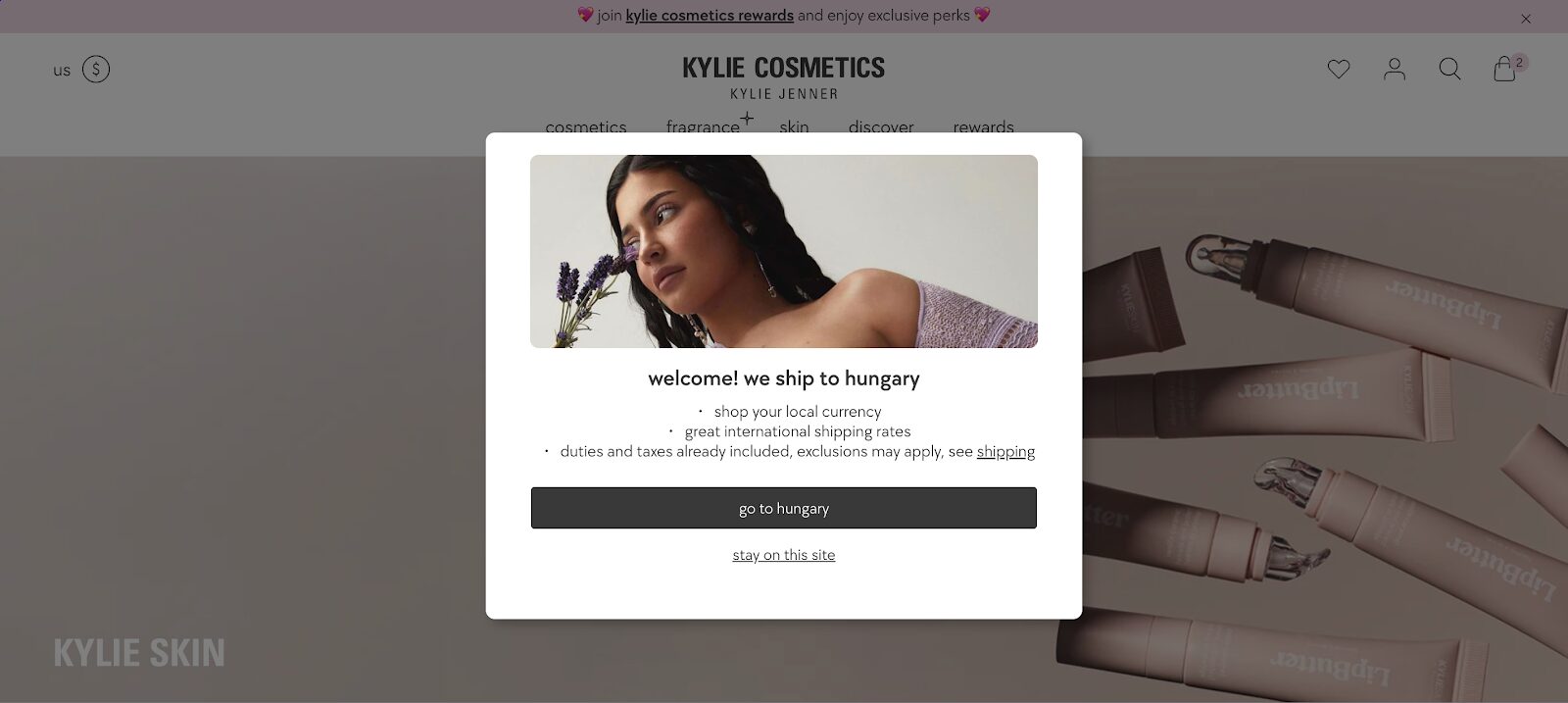
See how to set it up and implement this in your marketing strategy now.
FAQ
How do location-based notifications improve customer engagement?
Location-based notifications use a visitor’s geographic data to deliver messages that feel relevant. For example, showing a message like “We ship to the UK!” or offering personalized offers such as a local promotion can boost trust and drive higher engagement by making users feel seen and catered to.
Are personalized push notifications only for mobile apps?
Not at all. While mobile apps were the original home for push notifications, web push notifications have become just as powerful. With the right tools, you can send personalized messages directly to users’ desktops or mobile browsers—even if they haven’t downloaded your app.
Can I combine location-based and personalized notifications?
Absolutely. In fact, combining both creates even more impactful messages. For instance, if a returning customer from Germany is browsing winter coats, a notification like “Stay warm in Berlin! Our bestsellers are 20% off today” hits all the right notes—location, timing, and personal relevance.
Final thoughts
Personalized notifications aren’t just about sending more messages—they’re about sending the right messages to the right people at the right time.
Whether it’s reminding a shopper about what they browsed on their last visit, alerting them to a restock, or nudging them toward a purchase with free shipping, these small touches create big wins.
Start with one tactic and test, optimize, and scale. Your audience—and your conversion rate—will thank you for it!
Migration has never been easier
We made switching a no-brainer with our free, white-glove onboarding service so you can get started in the blink of an eye.
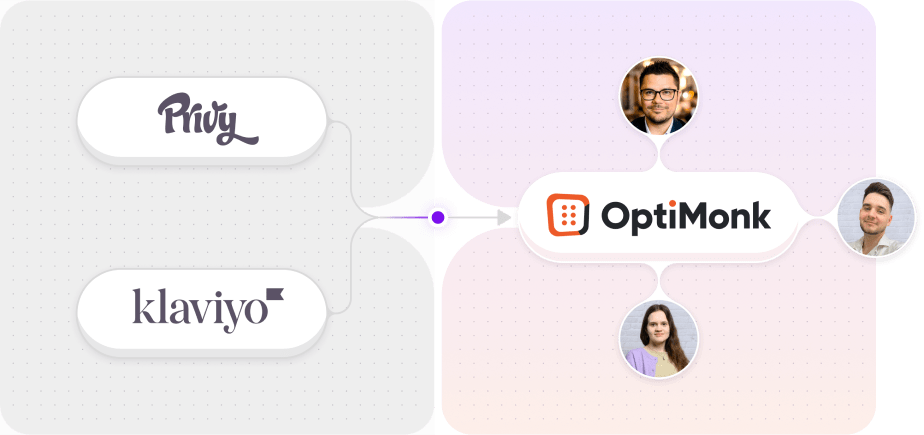
What should you do next?
Thanks for reading till the end. Here are 4 ways we can help you grow your business:
Boost conversions with proven use cases
Explore our Use Case Library, filled with actionable personalization examples and step-by-step guides to unlock your website's full potential. Check out Use Case Library
Create a free OptiMonk account
Create a free OptiMonk account and easily get started with popups and conversion rate optimization. Get OptiMonk free
Get advice from a CRO expert
Schedule a personalized discovery call with one of our experts to explore how OptiMonk can help you grow your business. Book a demo
Join our weekly newsletter
Real CRO insights & marketing tips. No fluff. Straight to your inbox. Subscribe now
Barbara Bartucz
- Posted in
- Personalization
Partner with us
- © OptiMonk. All rights reserved!
- Terms of Use
- Privacy Policy
- Cookie Policy













